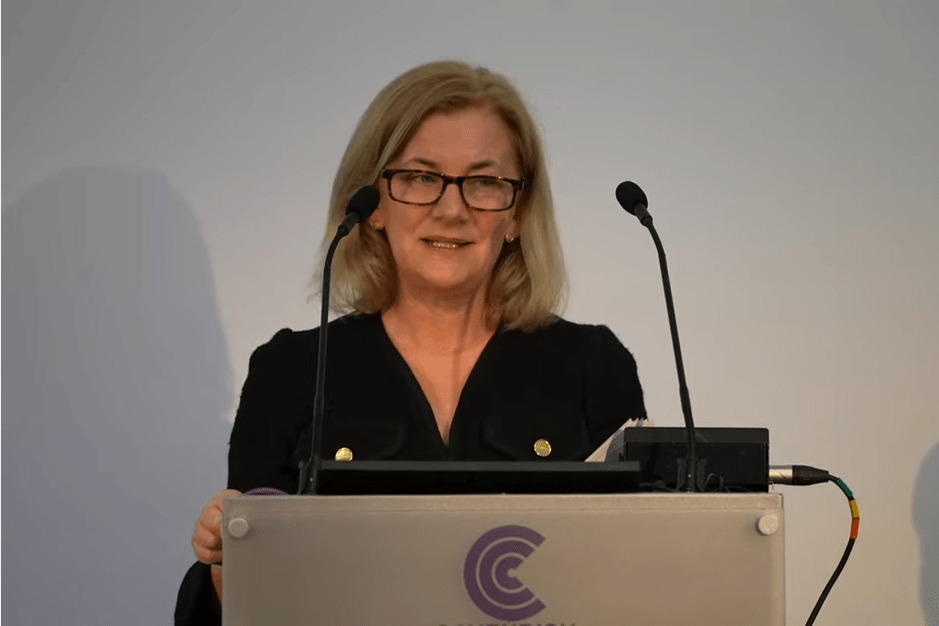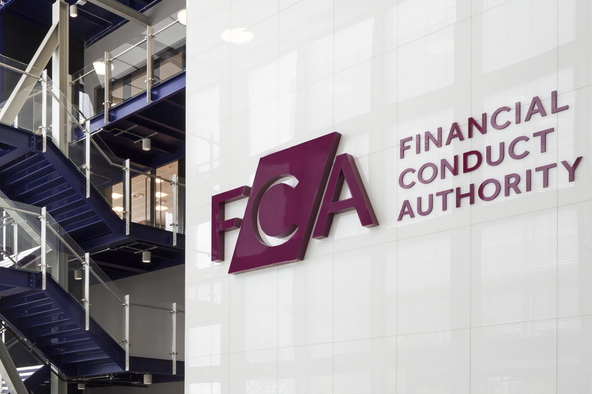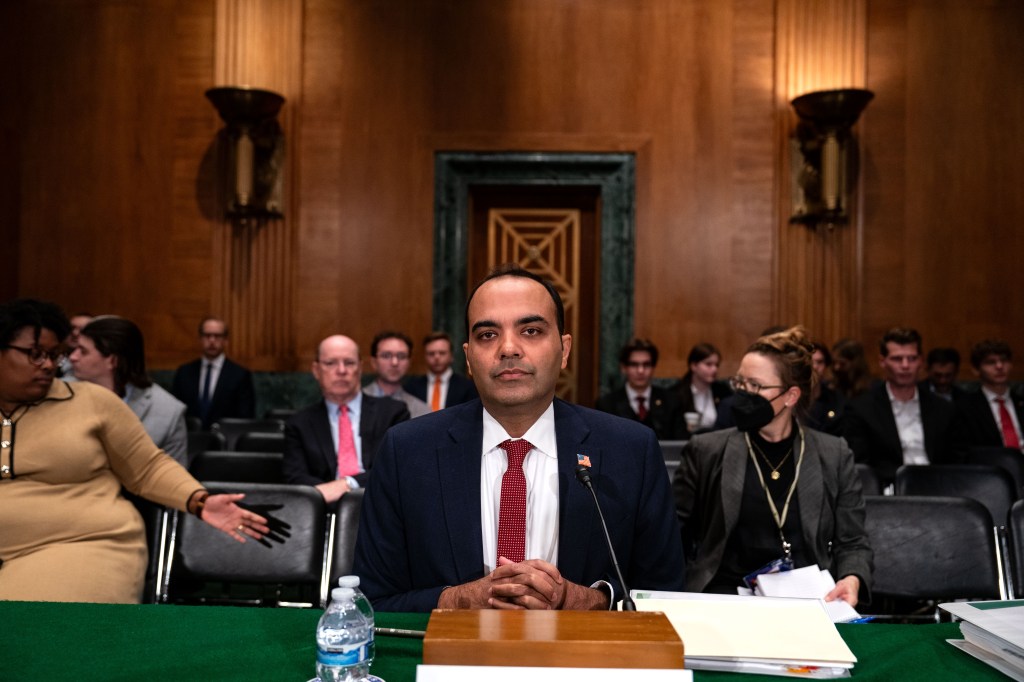This is a transcript of the podcast episode Katten partners Edward Tran and Oliver Williams on ESG reporting and M&A between GRIP senior reporter Carmen Cracknell, and M&A lawyers Edward Tran and Oliver Williams.
[INTRO]
Carmen Cracknell: Over recent years, an ESG strategy has gone from being a nice to have to a necessity and become an important factor for corporates when considering the future direction of a business, promoting a strong cultural and reputational position to attract capital and talent and creating additional value in a company. High growth ESG subsectors and emerging sectors like sustainable food innovation, waste recycling and electrical vehicle infrastructure are now seeing high levels of M&A activity. The views expressed in this podcast are personal and do not reflect the views of Kate Mnuchin Rosenman Law Firm or its clients. Today I’m joined by Edward Tran and Oliver Williams, both partners at Kate Muchin Rosenman Law Firm. Could you both please just tell us about your backgrounds and what you focus on at Katten?
Edward Tran: Sure. Happy to start first. This is Edward, or Ed speaking. Pleasure to be speaking with you Carmen this fine afternoon.
So by way of background, I am a transactional lawyer here at Katten. I focus on M&A, joint ventures and I work quite frequently with funds and other investors who are putting capital to work. Both here in the UK, but more broadly in terms of deals and transactions involving both Europe as well as the US, Asia and the Middle East. I’ve been with Katten for now going on five plus years and have been practicing for more than 20 years originally from the US. So I’ve seen a lot of deals there, but I’ve been here in Europe for more than 16 years now So Oliver, would you like…
Oliver Williams: I’m a transactional lawyer as well and I focus on M&A and general corporate law. My client base is a mix of corporates and institution investors. I would say in terms of sectors, it’s typically consumer financial services sectors. I’ve been practicing for something like 20 years as well.
Carmen Cracknell: Lovely. Well, great to have you both here. Just to start off with some general context, where has the increased interest in and awareness of ESG come from and how has the M&A industry responded?
Edward Tran: Why don’t I try and start off on that and then Oliver will jump in. I think you’ve seen a few different factors really contributing to that. The first is really an increasing awareness probably initially of the environment of the last five, 10, 15, 20 years plus of the S and the G in the ESG, so social governance issues. I mean, the environmental movement has been going strong for quite some time, decades quite frankly, but it’s only been more recently in the last 10 years plus or minus that I’ve seen stakeholders in transactional M&A deals be much more concerned with environmental issues and more recently as well with social governance issues. I think some of that is an outgrowth of the wider social trends to focus on environmental concerns and then ESG, well S&G concerns more recently.
The key driver of that in one part is a desire for a number of the companies, public companies to look like they’re being good and responsible corporate citizens. There’s a desire to really be focusing on corporate stewardship and doing what is good for not just the company’s bottom line, but the overall economy.
The other thing that really has grown in recent years is that a number of the investors who’ve been funding and fueling investment across private equity firms and other major types of investors have been more focused on themselves because they are feeling pressure from their stakeholders as well.
By way of example, pension funds, government-directed wealth funds, sovereign wealth funds, all of those institutions have been really more focused on being responsive to concerns about environmental issues, social issues, and governance issues, ESG type concerns. I think the investors are asking for it, the deal participants are looking for it.
I think there’s been more of a tighter alignment where people recognize that it’s not just question about the bottom line, but from perspective of the founders of companies, people who are trying to make business work, that it’s important as well. Let me pause there. I’m sure Oliver will have separate views.
Oliver Williams: Yeah, I agree with that. If you break down the ESG, I think if E is environmental, that’s been a concern on all participants’ minds for some time, a concern about environmental impact of businesses. I think, as Ed says, the S and the G part of it comes before, I would say, more recently. I think that that’s probably part of a wider change in social awareness. People are more aware of those things now. It has led certainly, obviously, on deals to a far greater scope of diligence on environmental and social and governmental issues, sorry, governance issues.
Carmen Cracknell: Sure. How does this impact M&A in particular?
Oliver Williams: I think on the, well, it certainly impacts the scope of the diligence that’s been done. That’s a sort of immediate answer to the question. I think in terms of a broader analysis on transactions, I think it’s now considered as something which may have a value impact. You know, you’re doing the modeling for a transaction.
You may need to look at the whole of the businesses. Let’s say you’re buying, you may need to look at the whole of thebusiness’ supply chain and the extent to which that supply chain has within it. Relationships either need to conform to a buyer’s ESG policy or which may need to conform to supplier’s ESG requirements as well. So you’re looking at the supply chains coming in. You’re looking at what, even if it touches certain areas which are relevant for ESG, you need to look at that as well. So that of itself can drive value on a transaction.
Edward Tran: And just to add one thing to that, ESG issues have also had a really significant impact just thinking about where investors want to put their money. There’s a large debate, it will come under this, about whether or not it makes sense to be investing in natural resource focused businesses or extracted businesses where the carbon footprint might be higher than in other businesses.
And there is a, you know, apart from just does it make money, is there a long term profitability of investing in that business? There’s that overarching question that a lot of investors have been thinking about more critically. And that goes to the question of whether or not they want to put money into a company as well as whether or not they want to acquire a company or not, as the case may be. So there’s quite a lot of conversation going on in the M&A space around these sorts of issues.
Carmen Cracknell: That makes sense. I mean, we focus here on compliance at Global Relay. What are the regulatory implications of this increased focus on ESG?
Edward Tran: Well, I think there are a few different levels of this, right? So the first is that across the globe, in Europe, certainly the UK and the US anyway, there’s been an increasing level of focus on making sure that there is appropriate and adequate reporting. So that’s to say that companies are having to go ahead and report where are they in terms of carbon generation, their businesses, other issues in terms of on the S for example, where are they in respect to their various policies, whether their personnel policies or policies in terms of board room makeup, they’re having to go ahead and disclose in a way that they didn’t before. That’s the first thing. The second thing I’ll say is that, and I’ll generalize a little bit, but there is an increasing level of emphasis being placed on the adequacy and appropriateness of those disclosures from regulatory point of view. And you’ve seen terms like greenwashing or other sorts of attempts to make a company or a reporting entity look better than they may be to be a bit rosier than they could be in terms of their disclosure. And those issues have come to the forefront and regulators have come out and said, look, we don’t like this sort of thing. And in some cases, there are fines and penalties that are attached to that. So I think the message is to take both those things together, better reporting, a need to be more focused in terms of accuracy and disclosure at the same time as there’s also potential penalties for not getting it right, which means that companies are a little more focused in this area.
But the benefit, I suppose, is that investors, members of the public, institutions that are thinking about buying companies and so forth, have much better data than they ever have had in the past on environmental, social and governance issues. And again, it varies from jurisdiction to jurisdiction. But on the whole, we see that the quality of data has been enhanced, is increasing, which is quite useful.
Oliver Williams: Yeah, I think it’s also, I mean, one thing I think now you’ve got is more advisors who are focusing specifically on ESG because I think ESG is such a big topic that no one advisor is necessarily going to feel the nuances. And so I think that’s probably another way in which you might now find specialist ESG consultant, focusing on specialist areas.
Carmen Cracknell: Yeah, you mentioned greenwashing and that was going to be my next question, actually. How much of an issue is greenwashing and how can it be tackled? Is accurate reporting and fines enough or what else can be done? Do you think?
Edward Tran: Well, I think there was a sense over time that companies, reporting companies as well as investment funds were being fast and loose about what it meant to be a green fund or a green company and how you could call yourself that if you were such a thing without really being robust and rigorous in being able to support those statements. I think that has happened in the past. There are various incidents which you could trawl through news reports in the last few years where this has happened. And I think that there is a real sense that those actions, those statements which may not be very well supported, that is not at all what regulators want to see. So the US SEC, the UK FCA, the various national regulators across Europe and other jurisdictions, they’ve really taken a harder line about that. And there have been some notable cases where fines have been levied. So I think it wasn’t a great problem or a big problem. I certainly think it was an issue and I think it may still go on to a certain degree. But by and large, there is a growing sense that you’ve got to get this right. And case in point, there are recent pronouncements in terms of accounting standards, for example.
Oliver Williams: I was just going to say.
Edward Tran: Well, let me just introduce the subject and let you go on to say more about that. But there are recent developments in that area which have really raised the bar, I think. And maybe I’ll ask you to jump in.
Oliver Williams: Well, I was just going to say, Carmen, to your original question is reporting and fines enough. I think it probably is. I do think that maybe the recent changes in the accounting standards, I think they are designed to improve the quality of the reporting. And I guess to make fines or sanctions for noncompliance stricter, easier to enforce.
Because I think the way their standards are basically intended to work is that people who are reporting ESG type benefits are required to put some sort of measurable metric on it. So that investors can say, OK, yeah, that is what those changes have done. Those standards are they in now? Or are they coming?
Edward Tran: They’ve been adopted and coming into effect in terms of IASB.
Carmen Cracknell: Yeah.
Edward Tran: So I think in the coming years, accountants will be also in the role of gatekeepers, effectively, of helping police ESG type reporting for companies.
Oliver Williams: I think they’ll be more focused on the actual metrics, you know, because at the moment, yeah, if you’re a big company, you’re going to report in relation to your ESG policies and procedures. But I think these standards may introduce more numerical data into that as well.
Carmen Cracknell: Sure. And some people complain, you know, about there being too much regulation. Do you think we could get to that point or do you think there’s not enough regulation in ESG currently?
Edward Tran: I’m trying to think if lawyers will ever say there’s too much regulation. Oh, look, I think.
Oliver Williams: That’s actually a really difficult question to answer.
Edward Tran: I think it’s a challenging area. I mean, let’s look at something which is similar to that. So just let’s think about accounting rules, generally speaking, right? What’s the purpose of accounting exercise about the company? We’re trying to figure out if the company is worth investing in or not. Is it making money or not? How is it spending capital, looking at things like earnings per share and all these other metrics and maybe adjusting them to take away or take out or move the effects of one off events. So just in terms of general accounting principles, there is under both, you know, UK GAAP, US GAAP, IFRS. There’s a huge body of rules and regulations that have been adopted over the course of the last, you know, 50 plus years to help us get to a better set of data so that an accountant can offer an opinion as to whether the accounts provide a true and fair view, in the UK, for example, of the financial position of a company. Now, some people will say there are too many rules. Some will say there are too few rules. There will be both sides of that argument. But the idea over the course of time has been to try and refine the rules to help the reader of the accounts get a better sense of being able to compare apples to apples. Right. And I think in the same way, ESG type rules and reporting will continue to evolve to help the readers of the reports that capture ESG metrics understand from an apples to apples basis whether company X is doing a better job, company Y across a range of different [indices]. Right. And so that process will evolve. I suspect that in some locations, you know, the regulators will probably go overboard and be too prescriptive or go down one route, which may not quite be the best route. And they’ll change course and go in a different direction. I think that will happen. Whether that will happen here in the UK or elsewhere in Europe or the US, you know, time will tell. But I think we’ll we’ll struggle. All of us collectively struggle in the deal economy and stakeholders and advisors and so forth to get to a better answer. But over the course of time, my predictions are that there will be more ESG style regulation on reporting because there’s been, relatively speaking, far less of it in years past. And I think it will be more standard over time as various regulators are working with industry and other reporting participants to figure out what works and what doesn’t work. And I suspect there will always be a bit of a push and pull dynamic, which is probably healthy. But I don’t think we’re quite at the state of what might be called a natural equilibrium in terms of the regulation. It will still go on for some time and develop for some time. And that’s probably a good thing from the perspective of if you have a set of clear, understandable rules, people can then figure out how to both report whatever they need to report in a consistent matter that gives the readers of those reports information about which they can make with which they can make meaningful decisions. Right. So that’s sort of the long term perspective. And we’ll see various fumbles and footfalls along the way. But that’s what you would expect to happen as this area evolves.
Oliver Williams: I can see it. So to answer your original question, I think that for market participants above a certain size, it is, I think, probably acceptable to have more regulation, increasing amount of regulation. Below a certain size, maybe they shouldn’t be subject to some of the regulatory burdens. You can see how ESG type reporting and disclosures may go in the way of or may evolve in the way that, let’s say, some of the corporate governance codes, you know, that began with a set of principles, they evolved over time. And now they are relatively standardized. And I can see that happening. But that may take some years.
Carmen Cracknell: Yeah, you mentioned different countries. And I wanted to ask, are some jurisdictions much more advanced than others with ESG? And if so, where and how?
Edward Tran: Well, I’ll just try and start on that. I mean, obviously, it’s an emerging trend, which has taken root in lots of places in the world. So I won’t, I don’t think I can actually say that, you know, one country is so far ahead of the others. But certainly, what we’ve seen in various parts of Europe and the United States is quite advanced as compared to other parts of the world from a larger macro perspective.
I think the US SEC has had a really healthy debate within the organization and within the industry more broadly about how to refine ESG reporting, about requiring companies to take steps along those roads, I suppose.
But equally, I think you’ll see that in a lot of Europe, including in the UK, that there’s just a lot of additional focus being given to pushing reporting companies, those companies that are listed, to do more about ESG and to focus on these things. So I think, you know, there’s there are areas in which I think between those geographies, you’ll see one country a bit ahead of the other in certain respects. But I think there’s a broad consensus that these these developments and the further developmentof regulation is going to continue for quite a long time.
Oliver Williams: Yeah, I agree with that. I think it will depend to a certain extent on how you define… I think if you look at the E, the S and the G separately, you might find that there’s a certain amount of harmonization on the environmental stuff. But then the S and the G might be different from from country to country. And they’ll differ because of the economics and the politics in those particular countries. That is probably where it sits.
Carmen Cracknell: Yeah. And lastly, I mean, you just mentioned the the acronym itself, something that I’ve heard come up a lot is people suggesting that the acronym actually be split. Do you think that could happen in the future? What’s your outlook for ESG going forward?
Oliver Williams: I think it could, because I think each one of those three things is a big topic within itself. And each one of those three things has a lot of of err, each one of those three has a whole branch of legislation hanging off it. You know, environmental legislation is one thing, but you’ve got governance legislation, which is specific. And then the social side of it includes so many things. So, yes, I do.
Edward Tran: And just to add on to that, I think of the three different categories that we’re talking about here, ESG on the E side, the environmental side, I think there’s been a lot more work, a lot more groundwork, a lot more thinking, a lot more well, science informed debate about what that should mean. And so…
Oliver Williams: It’s been around for along, time.
Edward Tran: It’s been around for a long, it’s it’s more well developed. And there’s perhaps a bit more of a broader consensus about what it means to be more environmentally conscious. And so you’ll have things around carbon footprint reporting, emissions based reporting, which which are broadly more well accepted, I think. And so you could easily see there being a broader consensus around the environmental reporting issues and regulatory issues at an earlier stage, where in contrast, I think for social issues and governance issues, those tend to be a bit more geographically specific or jurisdictionally specific, where different places, a lot of different views about the weighting the importance, how to implement those concerns into rules, into regulation and so forth. And they’re perhaps at an earlier stage of their development. So if you were to split them, I think environment taking environmental issues and looking at them in isolation would possibly be easier to do because you have more well defined regulatory frameworks there and more data and more reporting.
Oliver Williams: The fines are more specific. ED: Exactly. Where on the social governance side. I think you said at an earlier stage. So it’s harder to measure, report, test, etc.
Carmen Cracknell: Great. Well, that brings me to the end of my questions. Have I missed anything important that you wanted to add?
Edward Tran: Well, one thing I want to say is that as we are looking at what to do next, especially from an M&A perspective, how does this, you know, what does it all mean for folks that are in the market for the very stakeholders? I would just come away with following key takeaways. One is that ESG concerns are here to stay, they’re going to be with us for some time to come. And yes, there is a healthy debate. Certainly there is a debate in certain parts of the world about how much importance to place on these things. But I see a sort of a nod, if not a real focus on ESG in the east and the west, in the north and the south. And there’s always going to be debate about how important it should be alongside some other things. But I think it’s going to be with us for some time. And that’s probably a good thing, but it’ll be there. And the second thing I will say is that not only will it be with us for some time to come, but I also suspect that it will become more a part of the investment decision making process.
I think it’s too simplistic to say that an investor will only invest in green and never invest in brown, although some investors do follow that philosophy. And by green and brown, I’m using that as a shorthand way of saying companies that are better at ESG or better at environmental issues than others. But I think if you’re really trying to make an impact, the better data, better reporting, the more robust regulatory regimes that are being developed will give investors better ability to say, right, if I want to invest in a green company, which company do I look at? I can do it. Or if I want to invest in a company where I can make more of an impact, it might have more challenges ahead of it in terms of becoming greener or improving its performance on social governance issues. Here’s how I can do that. Maybe I can get some easy wins and maybe there will be a corresponding value attached to that, which will be interesting as the market starts to measure and monetize, if you will, the value that can be linked to performing well against environmental, social and governance yardsticks.
Carmen Cracknell: Awesome. Well, thank you, Edward, and Oliver so much for joining me.
Oliver Williams: Thank you.

















